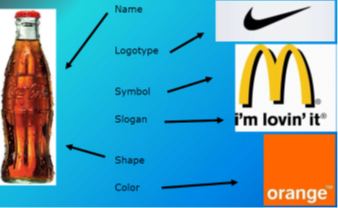Intellectual Property Right
Intellectual Property is a property that arises from the human intellect. It is a product of human creation.
WIPO ( World Intellectual Property Organization ) was established by the WIPO Convention in 1967
- The WIPO is a specialized agency of the United Nations.
- It promotes the protection of IP throughout the world.
- Its headquarters are in Geneva, Switzerland.
Intellectual Property comprises 2 distinct forms:
* Literary & Artistic Works – They are books, paintings, musical compositions, plays, movies, radio/tv programs, performances, & other artistic works. à protected by COPYRIGHT
* Industrial Property – describes physical matter that is the product of an idea or concept for commercial purposes
How are they Protected?
* By Patented objects
* By Trademarks
* By Industrial Designs
* By Trade Secrets
* By Layout-designs
* By Geographical Indications
Patent à A patent describes an invention for which the inventor claims the exclusive right.
Inventions Patentable if
- New (novel)
- useful
- not obvious
- pertains to Patentable Subject Matter – Invention
- Relates to A Process Or Product Or Both
- Involves an Inventive Step
- Be Capable of Industrial Application
- A Machine
Life and Duration
- Term of the patent is 20 years from the date of filling for all types of inventions.
- Priority date- first to file
- The date of patent is the date of filing the application for patent.
- The term of the patent is counted from this date
Fees for filing patent
- The Government fee for filing a patent application in India is Rs.750/- for individuals and Rs.3,000/- for legal entities.
- No fee for 1st and 2nd year
- Renewal fee, on yearly basis, is required to be paid for 3rd to 20th for keeping the patent in force.
- Patent lapses if renewal fee is not paid within the prescribed period.
Is patent granted in one country enforceable in another country
- No, there is nothing like a global patent or a world patent.
- Patent rights are essentially territorial in nature
- Granting a patent in one country of the Union does not force other countries to grant the patent for the same invention.
- The refusal of the patent in one country does not mean that it will be terminated in all the countries
The IPR protection works in numerous ways:
- Provides fair and effective incentive for innovation
- Protects pharma companies against potential infringers
- Provides strong enforcement tools for defending infringed patents
The following would not qualify as patents:
- An invention, which is frivolous or which claims anything obvious or contrary to the well established natural law. An invention, the primary or intended use of which would be contrary to law or morality or injurious to public health
- A discovery, scientific theory, or mathematical method
- A mere discovery of any new property or new use for a known substance or of the mere use of a known process, machine, or apparatus unless such known process results in a new product or employs at least one new reactant
- A substance obtained by a mere admixture resulting only in the aggregation of the properties of the components there of or a process for producing such substance
- A mere arrangement or re-arrangement or duplication of a known device each functioning independently of one another in its own way
- A method of agriculture or horticulture
- Any process for the medicinal, surgical, curative, prophylactic diagnostic, therapeutic or other treatment of human beings or any process for a similar treatment of animals to render them free of disease or to increase their economic value or that of their products
- An invention relating to atomic energy
- An invention, which is in effect, is traditional knowledge
Trademark:
- A symbol, logo, word, sound, color, design, or other device that is used to identify a business or a product in commerce.
- Different Symbols are :
™ Intent to use application filed for product
SM Intent to use application filed for services
® Registered trademark
- Trademark is valid for 10 years from the date of application which may be renewed for further period of 10 years on payment of prescribed fees.
- Service mark Rights are reserved exclusively for owners for 17 year & it can also be renewed.
- The Govt. fees is Rs. 2,500 for each class of goods or services
- A trademark is a sign Used on, or in connection with the marketing of goods or services.
- “Used on” the goods means that it may appear not only on the goods themselves but on the container or wrapper in which the goods are when they are sold
Trademark

Copyrights
- It is a right which Grants protection to the unique expression of Ideas.
- Copyright law protects the expression of an idea. Not the idea itself.
- Copyright lasts for the- Author‟s lifetime + 50 years from the end of the calendar year in which the author dies,
- Copyright protection always expires on December 31 of the last calendar year of protection
Geographical indications
- indications, which identify as good as originating in the territory of a country or a region or locality in that territory where a given quality, reputation, or other characteristic of the goods is essentially attributable to its geographical origin
Infringement
- Any reproduction, use , distribution, performance, etc. of the work without the permission of the owner.
- An identical or substantial similar reproduction is also covered
- Infringement – Damages – Injunction
Remedies for patent infringement
- A suit can lie in the District or High court
- It may issue an injunction either to prevent the infringer from any further use & award damages to the patent owner or will pay the patent owner royalties for further use.
- Punishment extends from 6 months to 3 years
- A permanent bans on engaging in commercial activities
